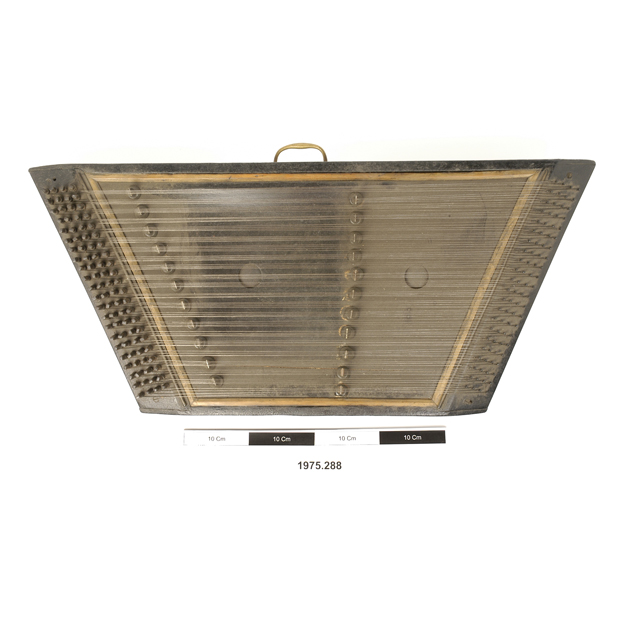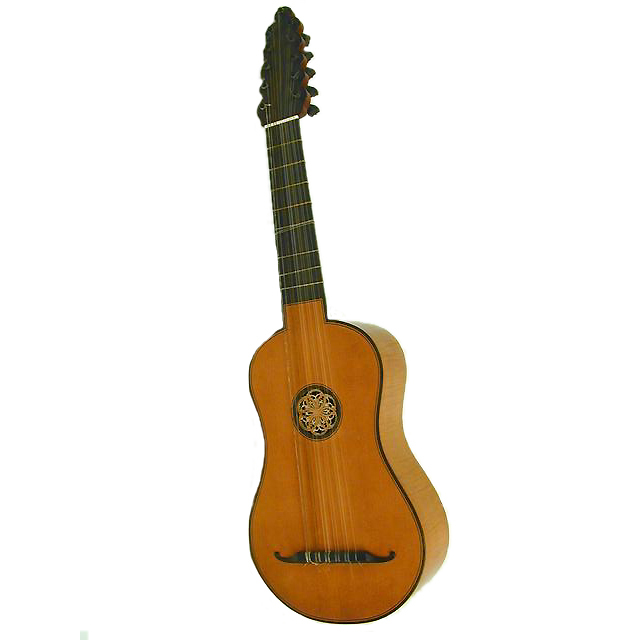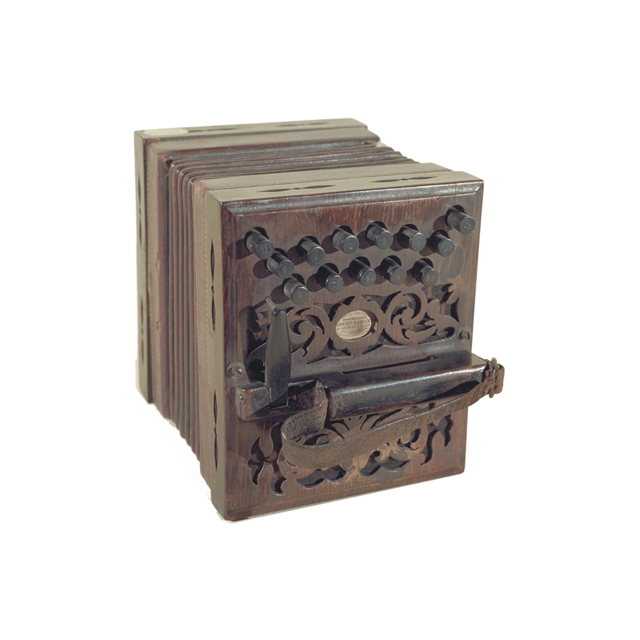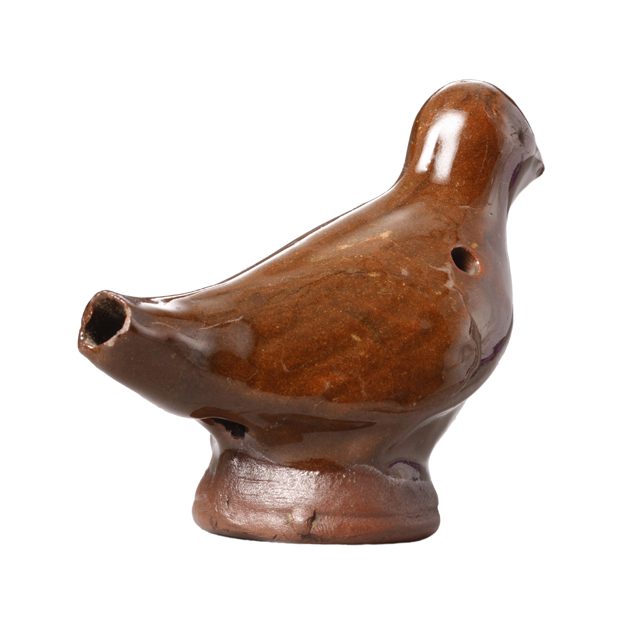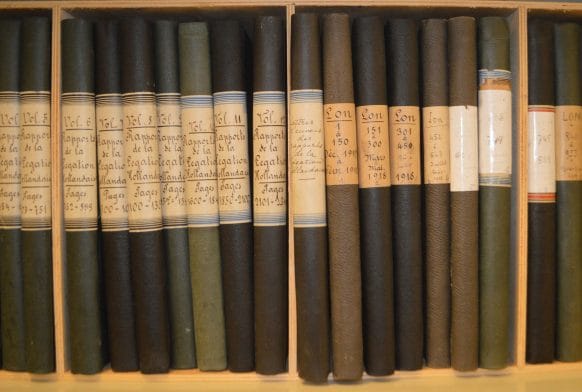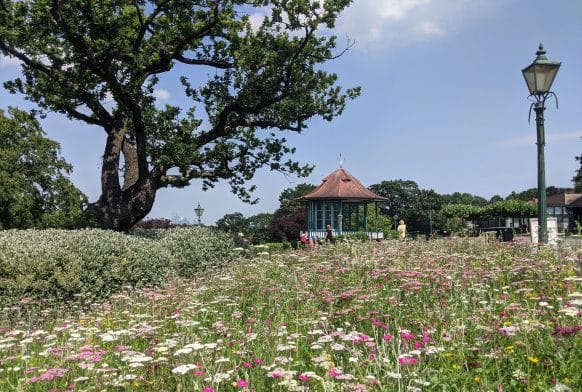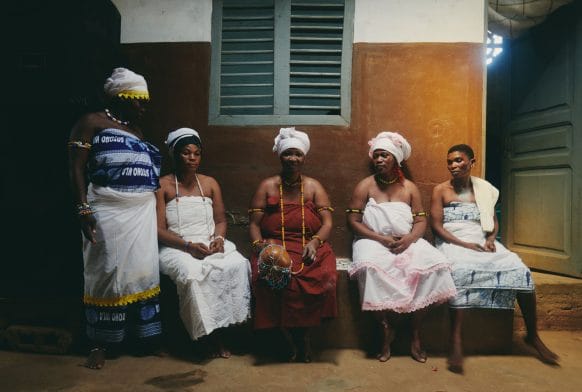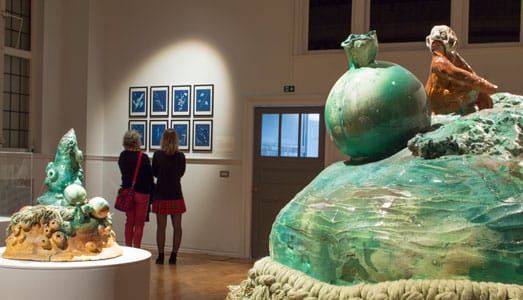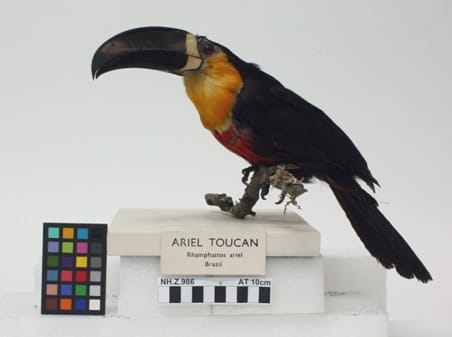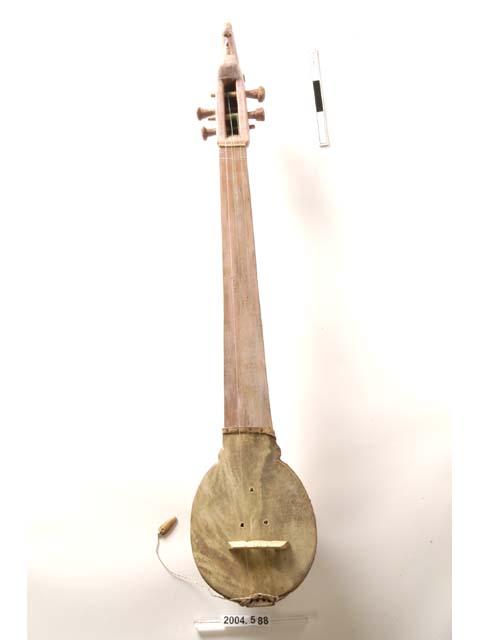
Tokari, long-necked lute, made on the river island of Majuli. The back, neck, peg-box and finial are carved from a single piece of gomari wood (Gmelina arborea). The finial is in the form of a crocodile swallowing a fish. The instrument and four pegs of the same wood were carved in Botiamari village. The goatskin soundtable and four nylon strings were added by the drum maker Sarot Das in Kamalabari. A small deer-horn plectrum is attached to the instrument with a length of string.
In Upper Assam, the tokari provides a melodic or drone accompaniment to devotional music, which is mainly dedicated to the Hindu deities Krishna and Shiva. The lute is held almost horizontally on the lap and plucked close to the bridge with the plectrum, which is held in the right hand. The strings are tuned, from low to high: Sa (Doh), Pa (Soh), Pa, high Sa. Some players use all four strings while others choose to use only three.



